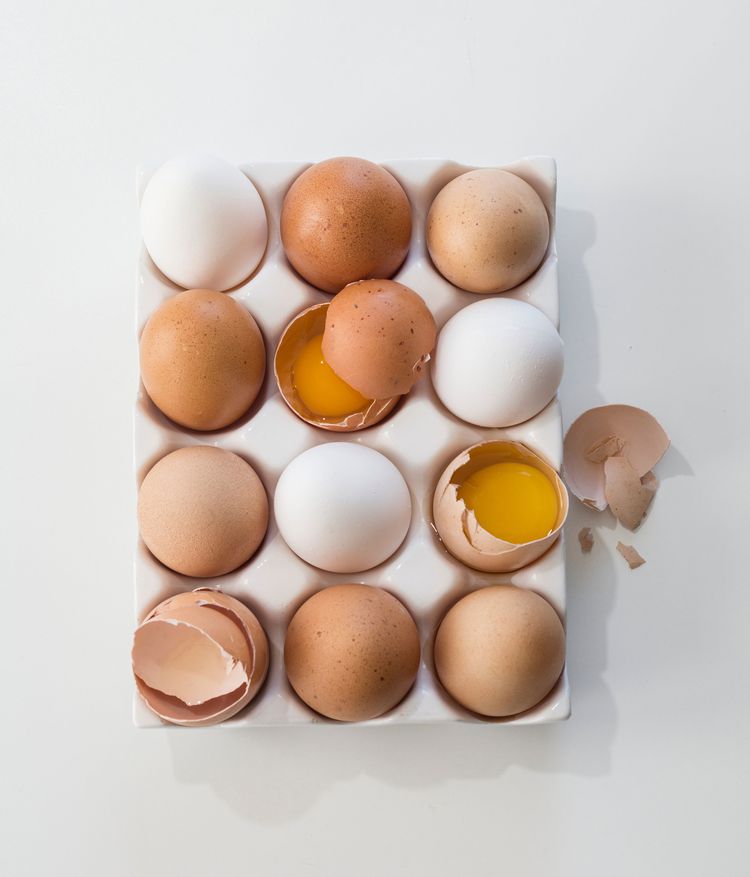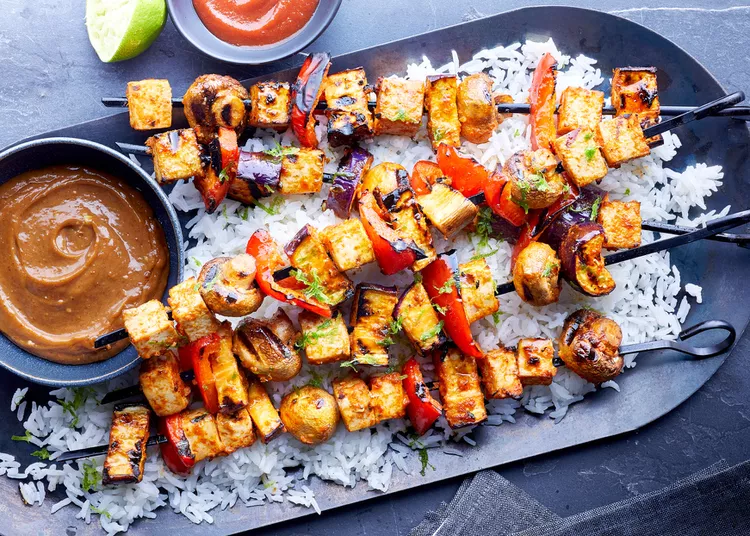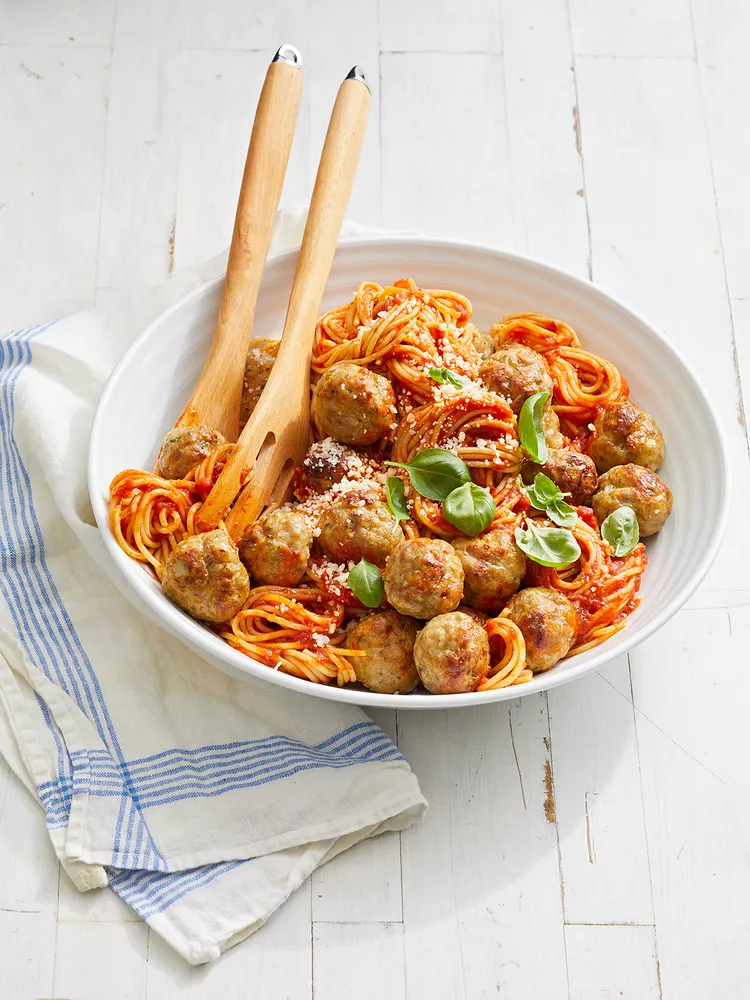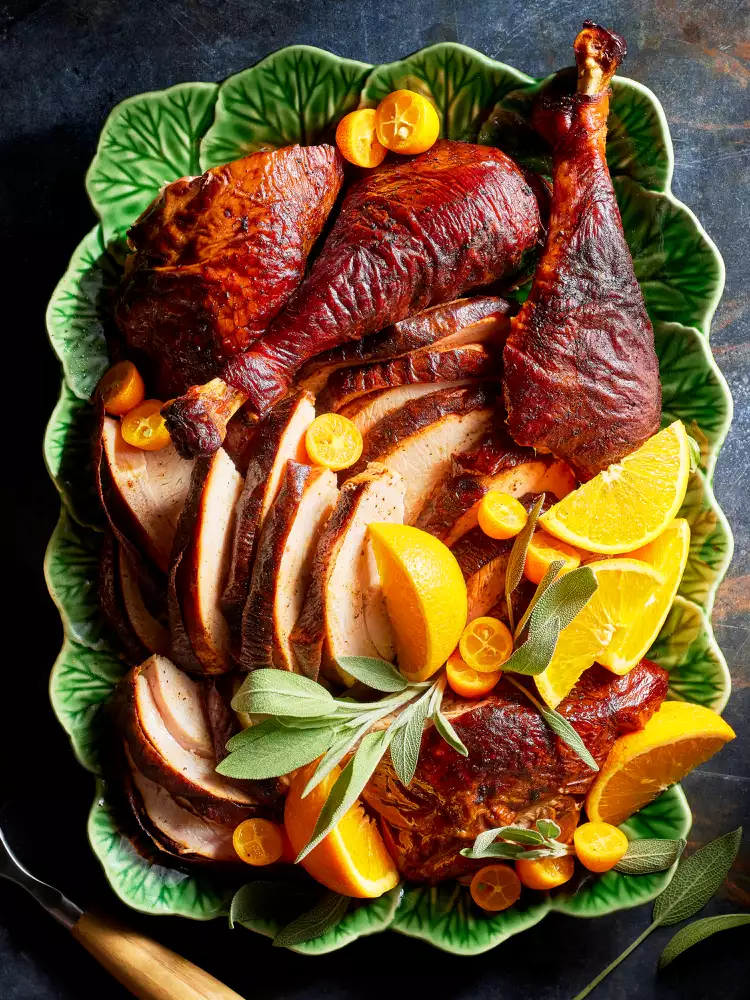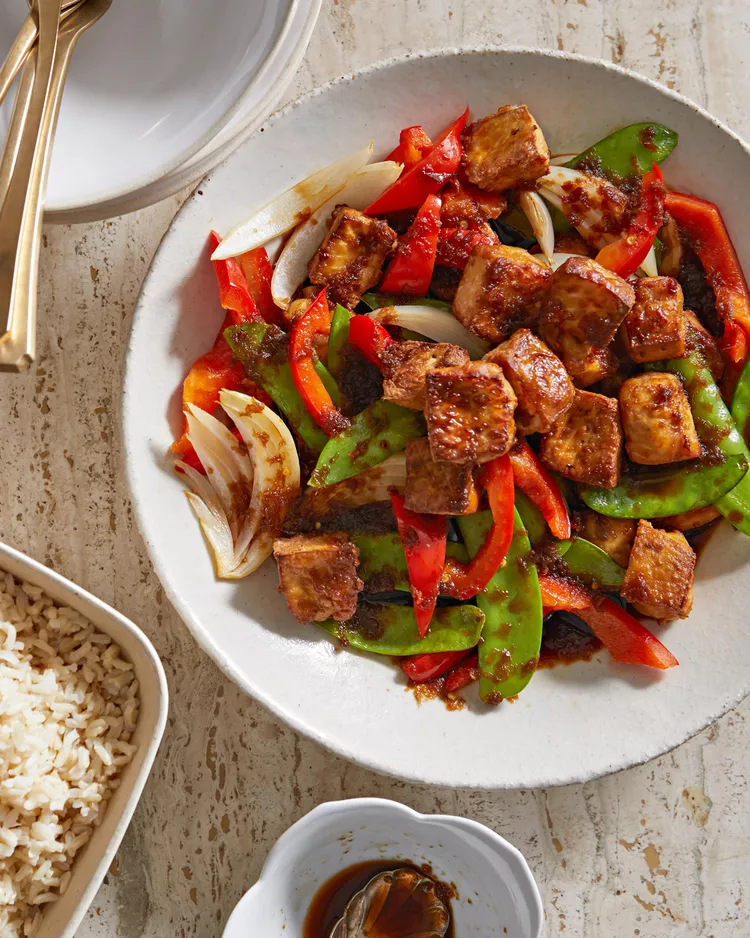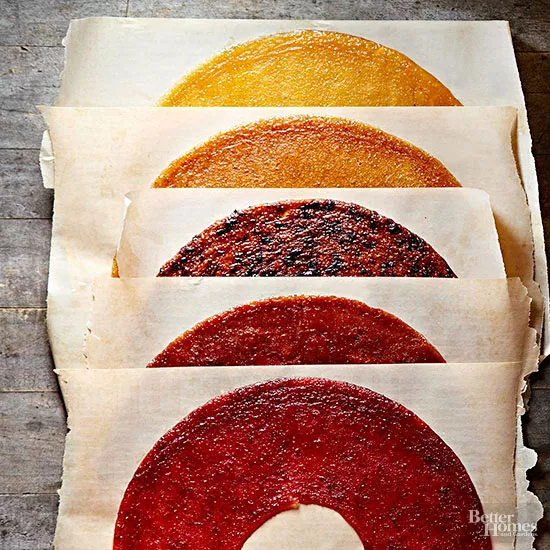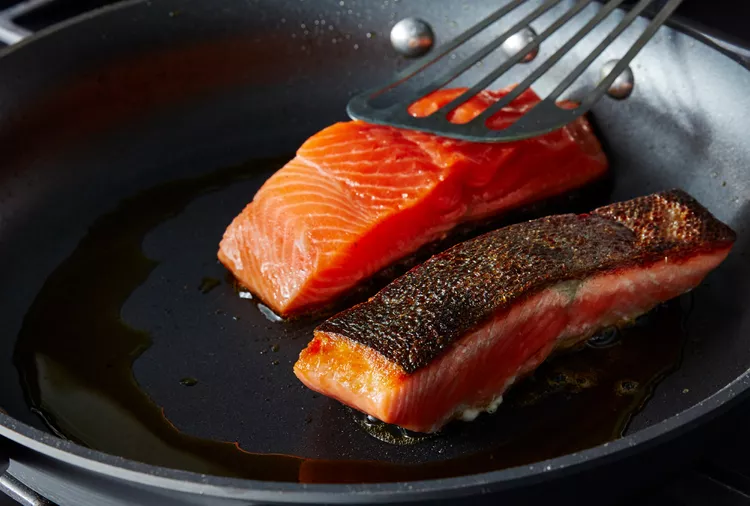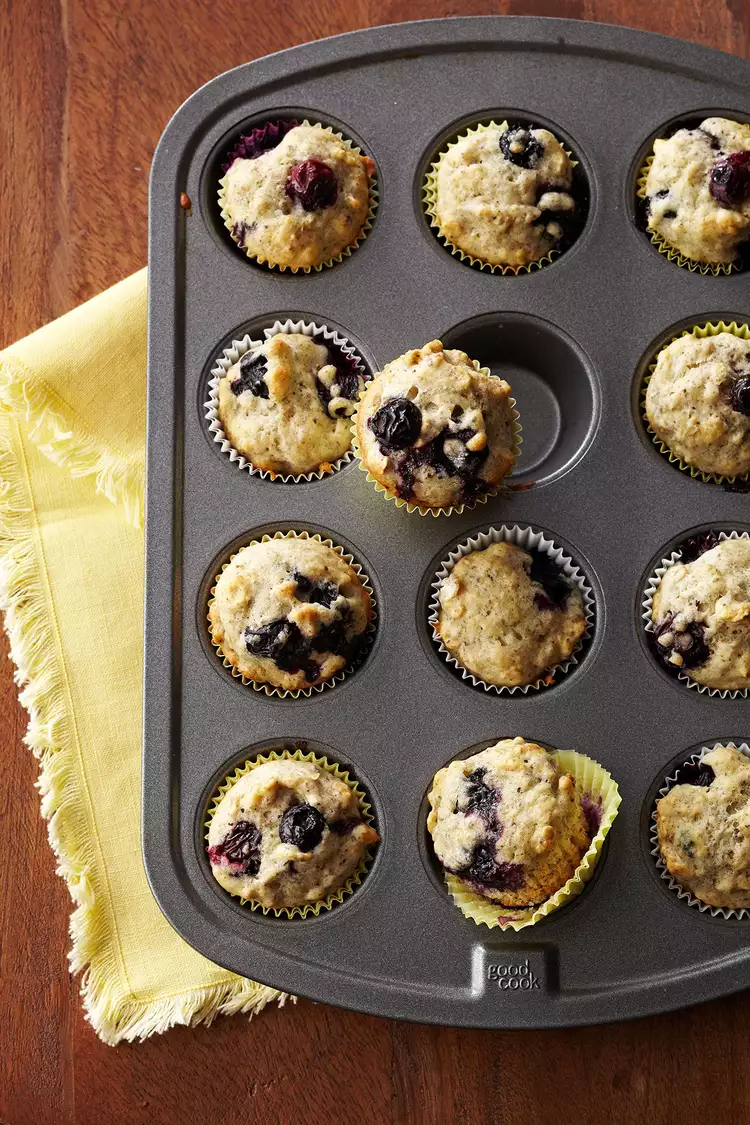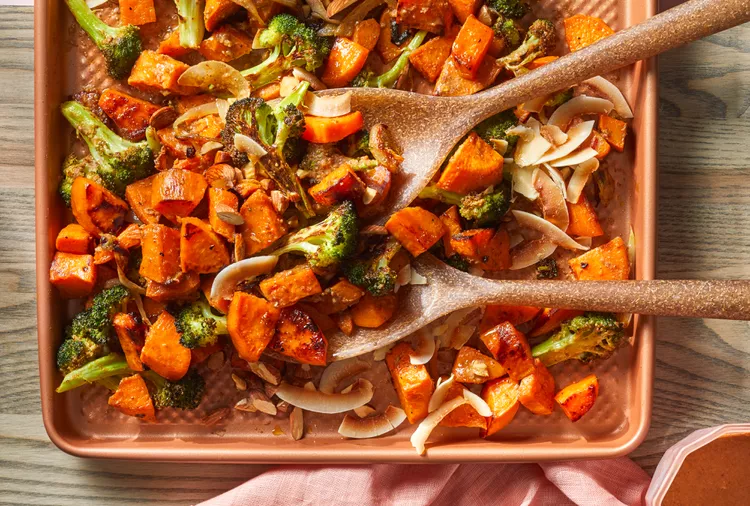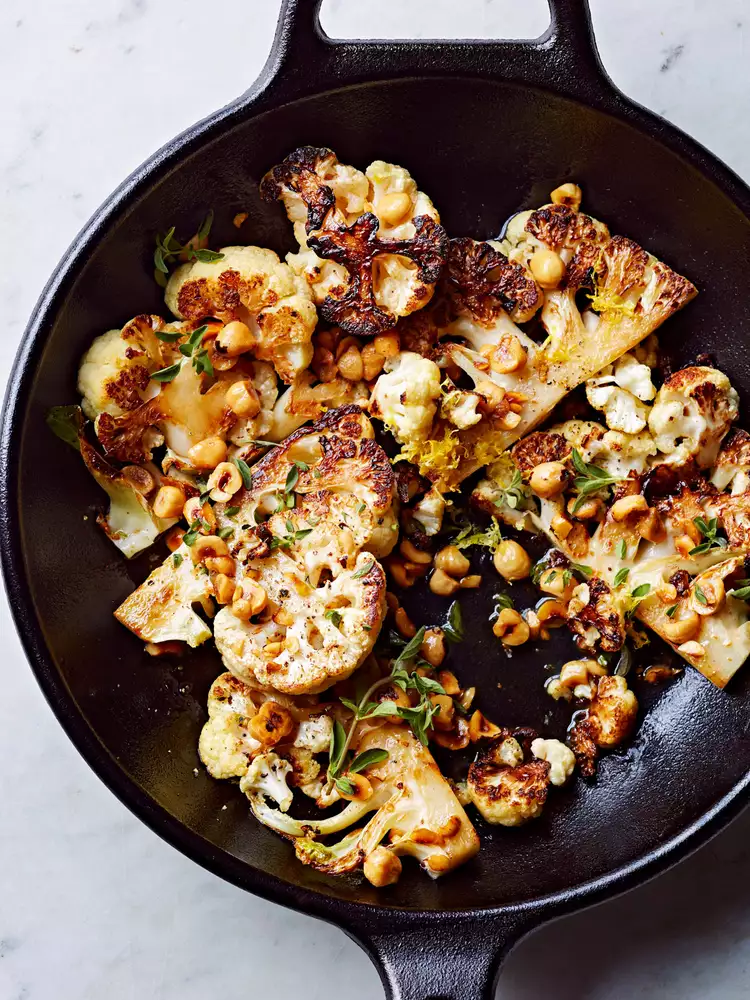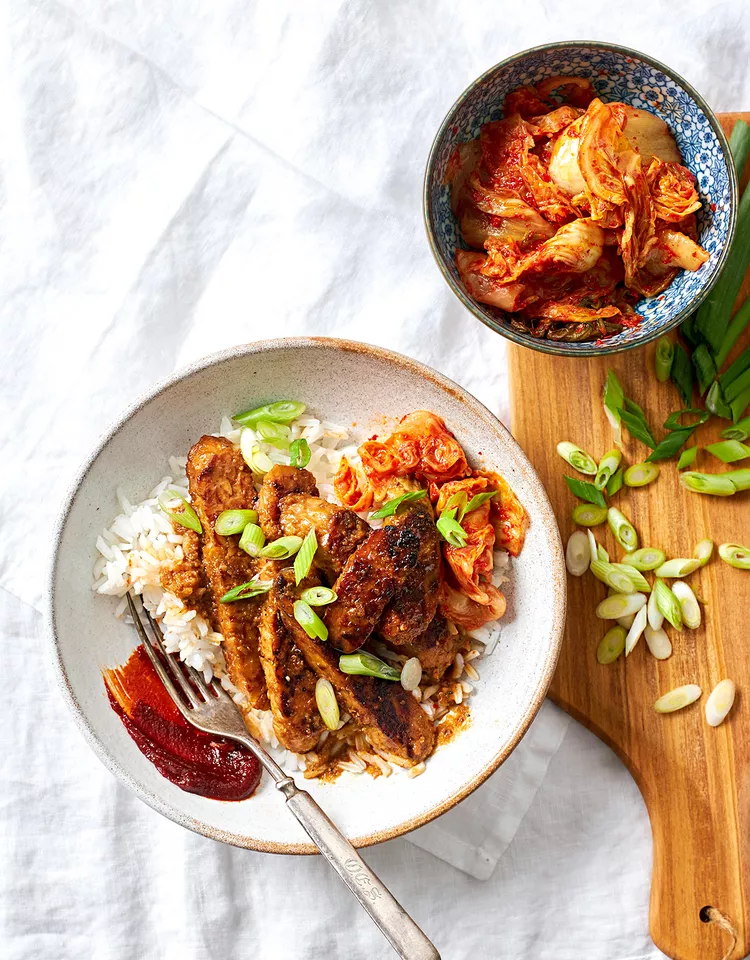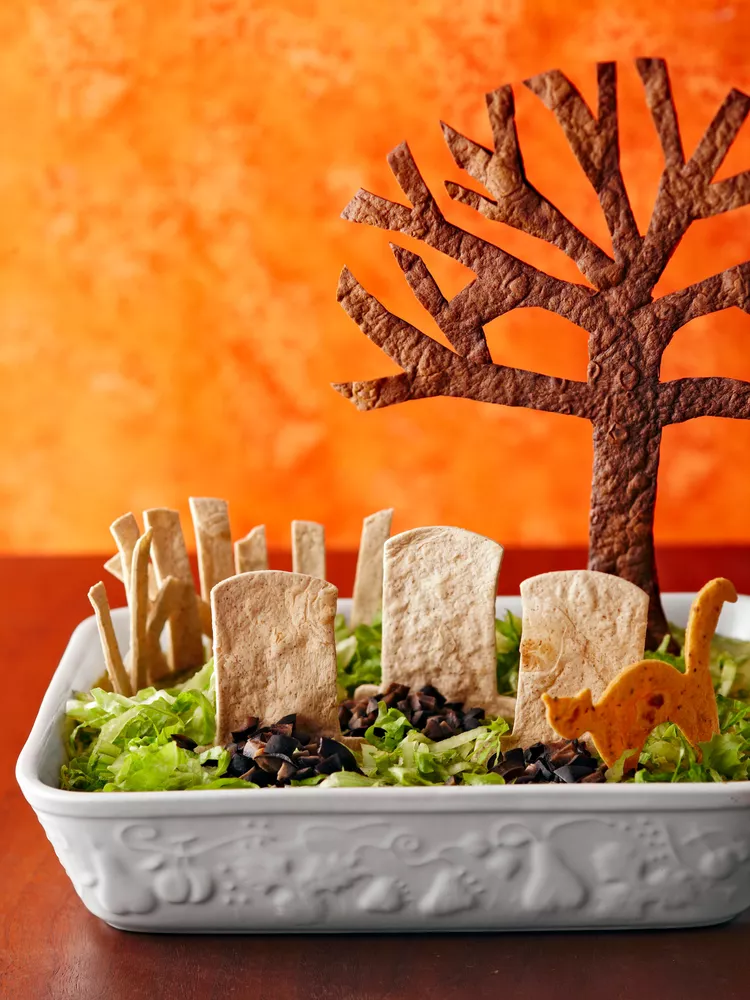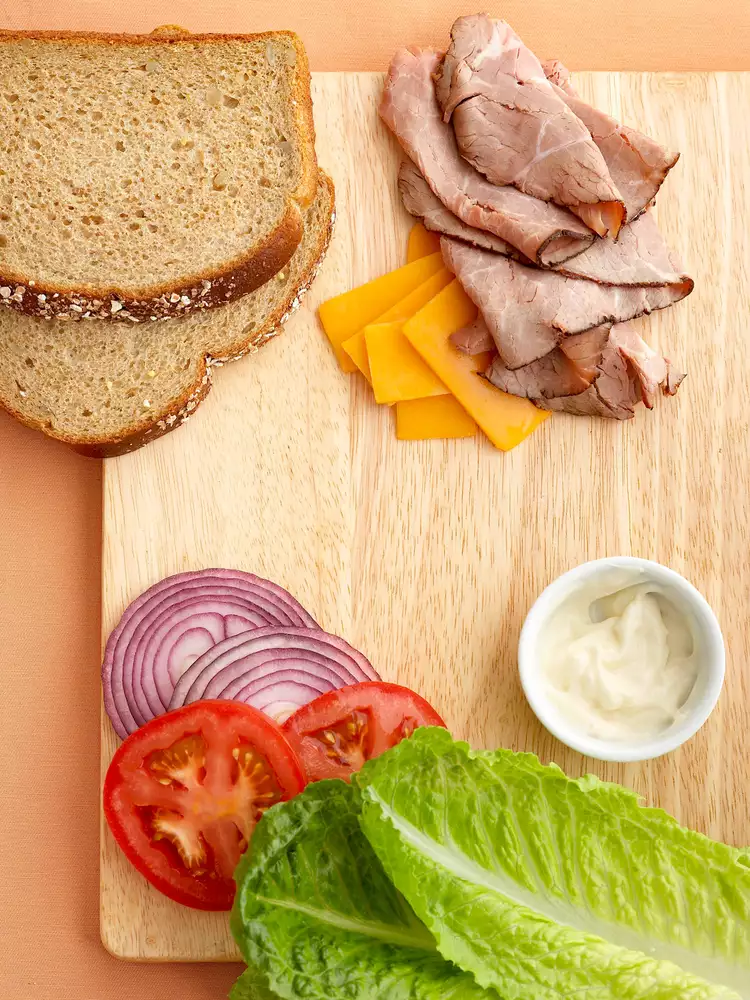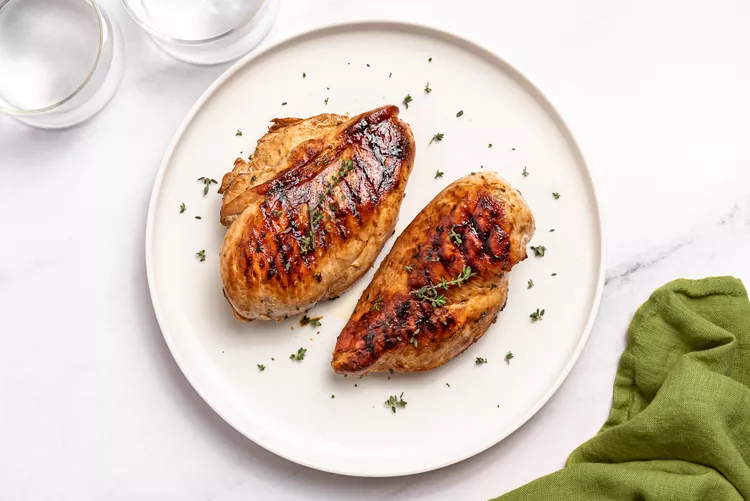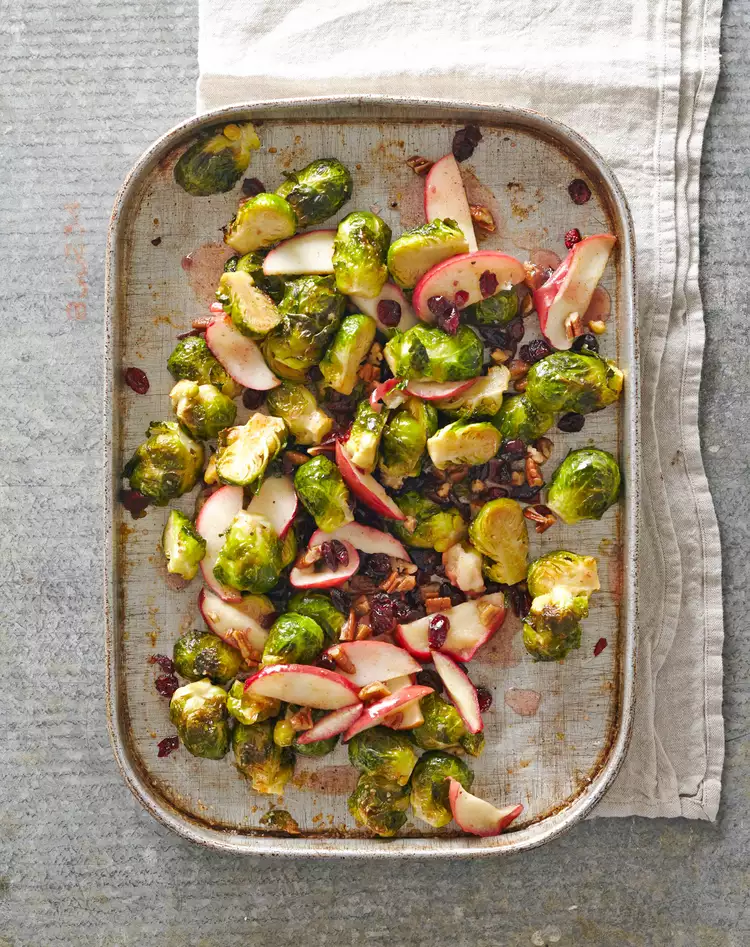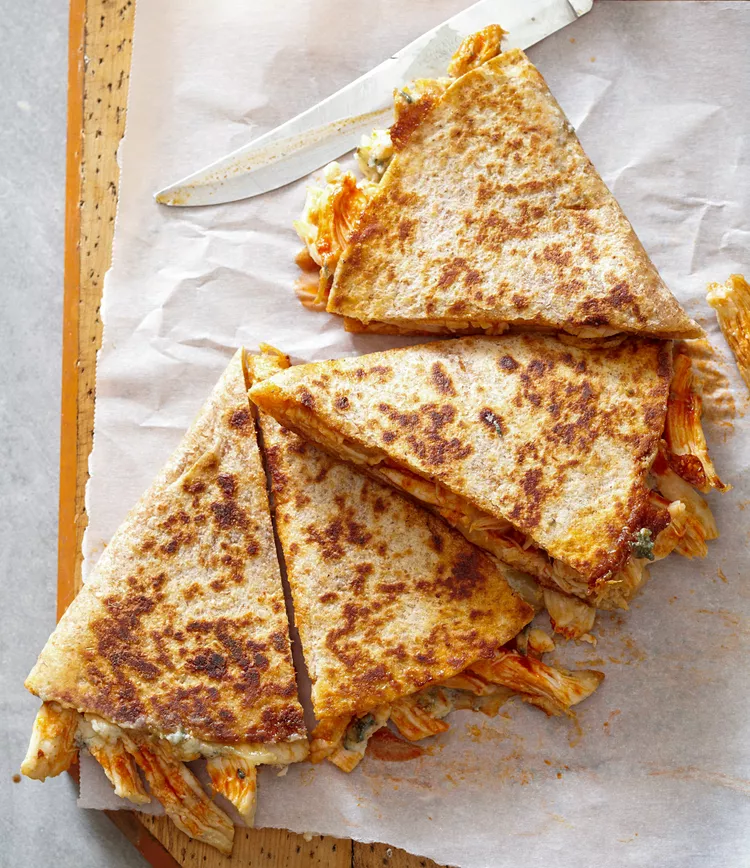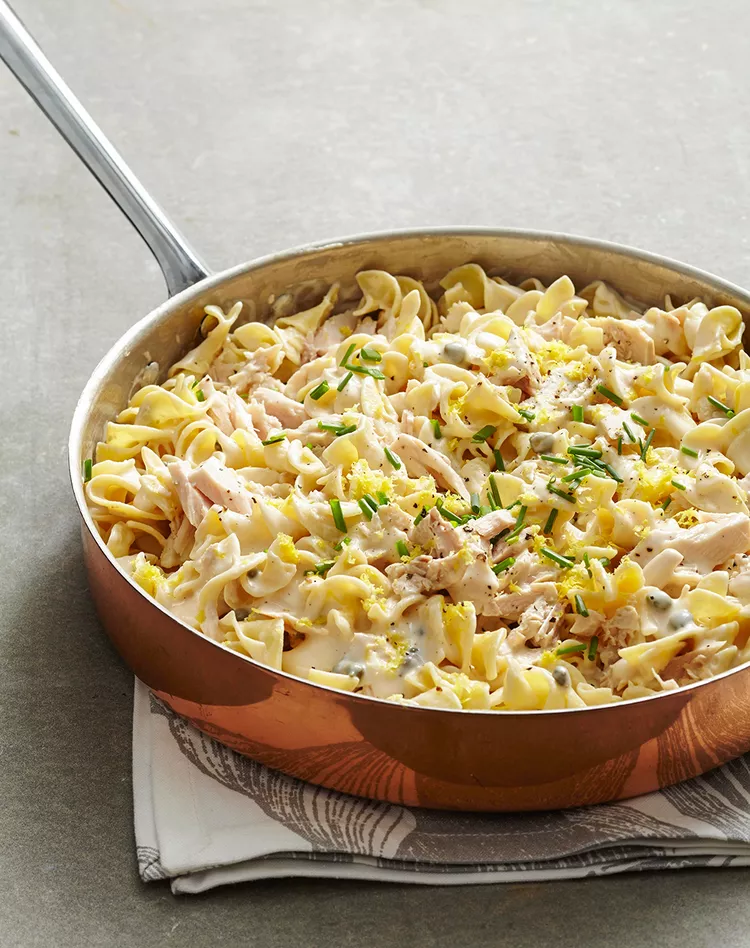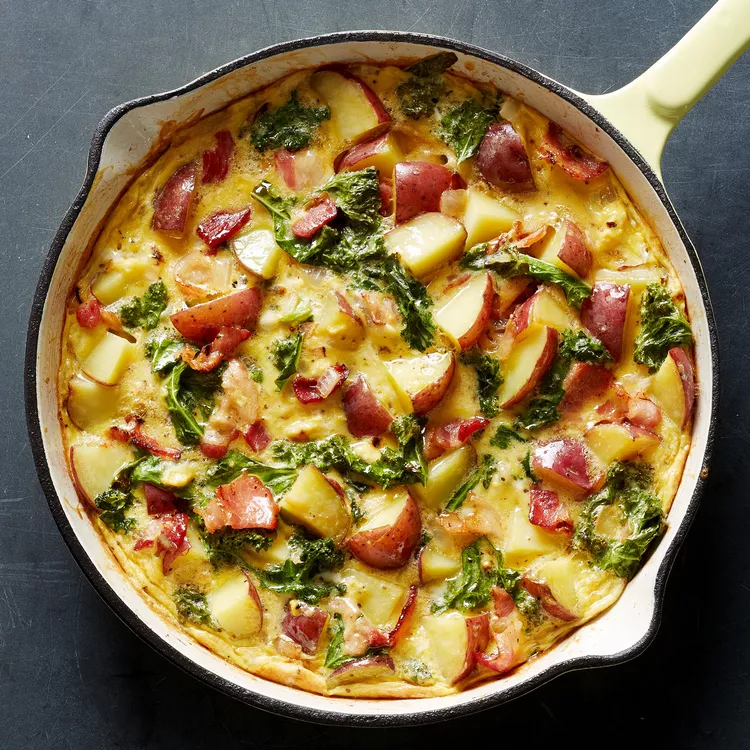In the world of baking, every ingredient plays an important role in even the simplest recipe. Eggs are one of the most common ingredients and are often key players. They provide stability, structure, leavening, nutritional value, and more. Water inside eggs is released while baking to keep the other ingredients moist, while the heat of baking coagulates proteins to help thicken or solidify. Without these processes, the final product can lack the intended texture or flavor. While many recipes call for whole eggs, others specify to use only the whites or add an extra yolk. Some ask the baker to separate the two parts and incorporate them at different times. Why not just throw it all together? Because the form or stability of the recipe can be drastically altered. For instance, did you know that egg whites can be whipped up to 8 times their original volume? This provides a perfect aerator in light and delicate desserts.
Despite their essential role, home cooks often need egg substitutes. Maybe you just ran out and don't feel like that extra trip to the grocery store. Or perhaps you have specific dietary needs, including egg-related allergies. There is also a growing population of people leading vegan lifestyles who need to find creative vegan egg alternatives for their favorite recipes.
The Best Egg Substitutes
Here are eight fantastic substitutions for eggs in baking, along with suggestions on how to use them and when to avoid certain substitutions.
Applesauce, Unsweetened
1 egg = ¼ cup or about 62 grams
If you do a search online for egg substitutions in desserts, applesauce will undoubtedly be near the top of your search, and for good reason. An applesauce egg substitute adds moisture and helps in binding all the recipe's ingredients together.
This option is best for breads, muffins, cakes, and cupcakes, though keep in mind that this option can cause the recipe to be slightly more dense than usual. A good rule of thumb for a lighter texture is to add ½ teaspoon of baking powder to help with leaving and to avoid using more than 1 cup of applesauce total as an egg replacement for baking.
Baking Soda and Vinegar
1 egg = 1 tsp. or 5 grams baking soda + 1 Tbsp. or 15 grams vinegar
This egg substitute is made up of two kitchen staples you almost always have handy in your cupboard. Combine these two ingredients and give them time to react (just about a minute), then add to the recipe to give your baked goods the fluffy, airy qualities you love in lighter products such as cakes and muffins. This substitution has been popular for decades, with recipes dating back to the Great Depression when many ingredients, including eggs, were scarce.
Banana, Mashed
1 egg = ¼ cup or about 58 grams
Mashed banana is another popular egg replacement in baking and a perfect way to use up that ripe banana that's lingering on the kitchen counter. Add the ripe banana to the recipe when you are creaming sugar to give it a chance to emulsify completely.
The banana egg substitute is a phenomenal egg substitute for brownies and other baked goods, like cupcakes, pancakes, and waffles, but also note that this will add some distinct banana flavor to the final product.
Cornstarch and Water
1 egg = 1 tsp. or 3 grams cornstarch + 1 Tbsp or 15 grams water
Using cornstarch is a wonderful substitute when needing to add stability and a firmer consistency to your recipe. This option is ideal for egg-free custards and pudding desserts but is also a good egg replacement for breads, cakes, and cookies.
Ground Flaxseed and Water
1 egg = 1 tsp or 2.5 grams ground flaxseed (aka flaxseed meal) + 3 Tbsp. or 45 grams water
The flaxseed egg substitute has grown in popularity recently and is a fantastic substitute for eggs. If you haven't tried this method yet, you might be surprised at how a mixture of ground flaxseed and water can be similar the consistency of an egg. Simply mix the ground flax with water and let the mixture rest for about 10 minutes. This helps activate the thickening qualities of flax and creates a thick ingredient reminiscent of a raw scrambled egg.
This substitution can be used in nearly all baked goods but is especially wonderful in pancakes and cookies where the earthy taste of the flax compliments the flavor of the recipe. It is definitely a healthy egg substitute in that flax has half the calories and almost half the fat of an egg. It is also cholesterol free and adds fiber.
Mayonnaise
1 egg = 2 Tbsp. or 30 grams mayonnaise
You read that correctly. A mayo substitute for eggs might seem a bit out there, but it helps to think of what mayonnaise is made of: eggs, oil, and an acid (either vinegar or lemon juice). All these ingredients are extremely common in baking, making this substitution an unexpected but welcome addition to your recipe. Since mayonnaise is made with a decent amount of oil, cutting back the butter or oil in your recipe would be helpful, though isn't essential. This option is best in baked goods where you'd like the result to become denser—think brownies, cookies, and quick breads.
Nut Butters
1 egg = 2 Tbsp. or about 32 grams nut butter
Nearly any nut or seed butter is a delightful substitution for eggs: peanut, cashew, almond, or sunflower butter are all delicious choices that also add a distinct earthy flavor to the recipe. These work as a binder to keep the batter together, while adding richness & extra nutritional value to the final product. This is a tasty option for breakfast items like waffles and pancakes.
Pasteurized Liquid Eggs (aka Refrigerated Egg Product)
1 egg = 3 Tbsp. or about 50 grams, though brands may vary
This suggestion might seem redundant, but for many, the ease of opening a container outweighs the hassle of dealing with eggshells. Since refrigerated egg products are pasteurized (a process to remove bacteria and microorganisms), they are safe and ready to use. These products come in whole egg, egg yolk, and egg white varieties, and instructions on the container take the guesswork out of how to use them for your recipes. This option is perfect for nearly any type of recipe that calls for eggs and is often considered a healthy egg substitute. It may have added sodium, and if you are watching salt intake, check the nutrition facts label before purchasing.
We don't recommend using an egg substitute when the recipe you are making relies on air being whipped into eggs for leavening, such as a sponge cake.
While it may take some experimenting to find what egg substitutions work best for you, having the creativity to use different options in your favorite baked goods and desserts makes culinary endeavors that much more exciting and personal.
